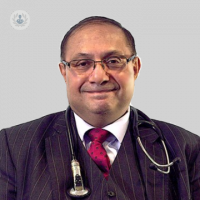Infectology
Dr Mashkur Khan - Internal medicine
Created on: 11-13-2012
Updated on: 09-29-2023
Edited by: Conor Dunworth
What is infectology?
Infectious disease, or infectology, is a branch of medicine that specialises in studying, diagnosing, and treating patients of all ages who have acute or chronic infectious diseases. The specialist who treats this is an infectologist. An infectious disease specialist has done three years specialisation during internal medicine residency and then three more years in the infectious diseases subspecialty.
The infectologist carries out tests and medical exams such as: sample taking, culture testing, as well as lab testing to view cells in isolation and identify different microorganisms. Infectology can be a great help to people who travel to areas prone to infectious diseases. The infectologist will recommend some guidelines to follow and help prevent acquiring a disease via vaccination for patients most at risk.

What conditions are treated?
Generally internal medicine specialists treat patients who have an infectious disease due to a microorganism, which could be a virus, bacteria, parasite, fungi, or an infection due to two or more simultaneous diseases. The infectious disease specialist treats conditions including: AIDS, tuberculosis, disseminated infections, infections resistant to the standard antibiotics, prosthetic or foreign object infections, and infections in cancer patients dues to chemotherapy or radiotherapy.
An internal medicine specialist may also diagnose and treat tropical diseases. Tropical diseases are a group of diseases that are more common in tropical areas and include: malaria, yellow fever, dengue fever, chikungunya, schistosomiasis, cysticerocosis, onchocerciasis, leishmaniasis, trypanosomiasis, and amoebiasis among others.
When should I see a specialist?
If there are no complications in an acute infectious disease and the patient has a strong immune system, then a general practitioner, family doctor, or an internal medicine specialist can treat it. The infectologist steps in when complications arise in patients who are immunodeficient, who have chronic diseases, or are at advanced ages. A specialist should be seen when the patient has a viral, bacterial, or a parasitic infection.
A specialist should also be seen if the patient has: viral hepatitis, a sexually transmitted infection, toxoplasmosis, chagas disease, and malaria, among many others.






